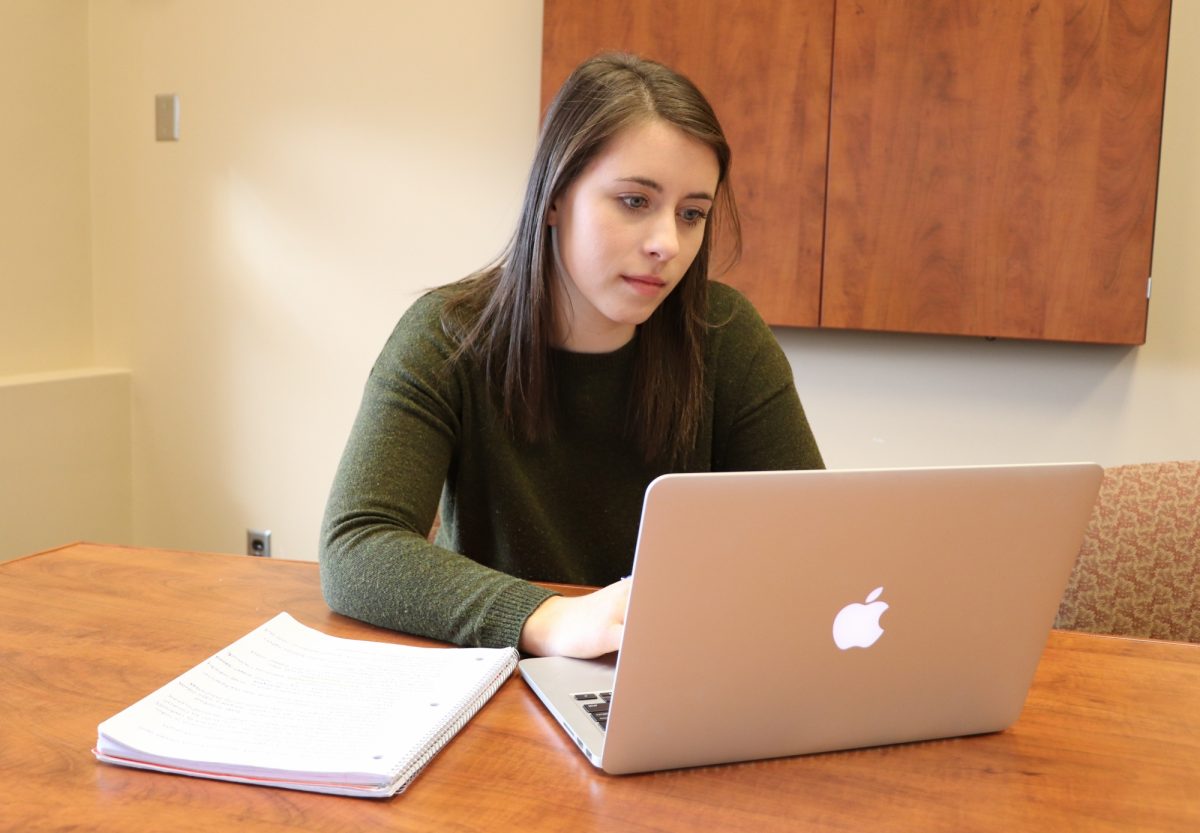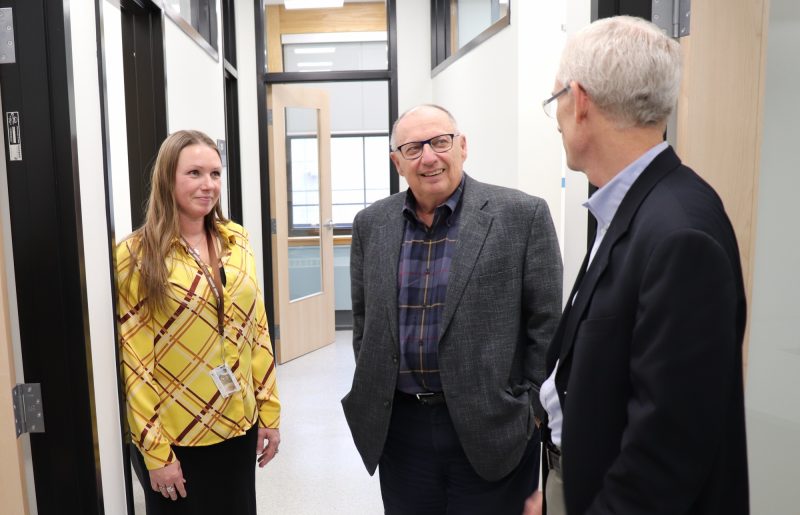
Lexie Rea, a fourth-year bachelor of health sciences student, said she enjoys the broadness of the program.
Interdisciplinary Health Program produces well-rounded grads
Program offers bachelor of health sciences and bachelor of health studies
Students in the University of Manitoba’s Interdisciplinary Health Program (IHP) say it provides a broad-based foundation for a variety of health careers.
The IHP offers two four-year degrees: the bachelor of health sciences and the bachelor of health studies. Established in 2007, it’s a joint program between the Faculty of Arts, Faculty of Science and the Rady Faculty of Health Sciences, with the latter administering the program. Students study on the Fort Garry campus.
The degrees are designed to give an interdisciplinary education to students who are interested in health careers, says program director Dr. Mark Nachtigal.
“Students are receiving a degree that is focused specifically on health, and within each program this includes both fundamental science and social science,” Nachtigal says. “This distinguishes the IHP from other UM programs.”
That distinction is what attracted fourth-year student Lexie Rea to the bachelor of health sciences program. When Rea started university, she knew she wanted to pursue a career in health care, but she wanted to learn more than just chemistry and biology in her undergraduate studies.
“I wanted a broader perspective on health care,” she says. “I’ve enjoyed that I got to learn about everything from policy and planning to health determinants to research methods, and everything in between. I also got to learn about economics, sociology and biomedicine. I just really enjoyed the broadness of the program, and that is what really drew me in.”
In addition to science courses like biology, anatomy and chemistry, students in the health sciences program take courses in economics, psychology, native studies and business.
“There’s so much more to health care than I thought there was,” Rea says. “While being in the program I have changed my mind probably a dozen times about what I’m going to do in the future, which I think really goes to show how much the program has to offer.”
While Rea has decided to apply to occupational therapy, students graduating with a bachelor of health sciences have the base to enter other health professional fields, such as medicine, physiotherapy or dentistry. Graduates can also go into biomedical research, teaching or health-care administration.
While the bachelor of health sciences focuses on the science of health, the bachelor of health studies degree emphasizes the social science of health.
Like Rea, Brooklyn Gigolyk entered university with her eye on working in health care, but she’d always been stronger in the humanities than in the sciences, and her interests aligned with the social sciences.
“When I heard about the health studies program, I decided it was for me,” says Gigolyk, a fourth-year student. “The program is interdisciplinary, so it’s really opened my eyes to a lot of different material that I wouldn’t have been able to learn about if I was doing a straight science degree.”
Health studies students take courses in anthropology, psychology, sociology, family studies and native studies, as well as the sciences. Courses range from ethics and biomedicine, to sociology of health and illness, to native medicine and health.

(From left to right) Karen Holmes, IHP student advisor and program co-ordinator; Dr. Brian Postl, dean of the Rady Faculty of Health Sciences; and Dr. Mark Nachtigal, IHP director. Dr. Postl takes a tour of the new IHP space on the Fort Garry campus.
Learners in the bachelor of health studies select one of three concentrations: health policy, planning and evaluation; health promotion and education; or family health.
Gigolyk isn’t yet sure what area of health care she’d like to pursue, but students’ possible paths include going on to graduate studies – for example, pursuing a master’s of public health – working in government to develop health policy, or educating the public for a charitable foundation.
In 2019, the IHP opened a new home in the Human Ecology Building on the Fort Garry campus. It features a reception area, five offices and space for Rady Faculty professors to use when they’re visiting from the Bannatyne campus or St. Boniface Hospital.
“It’s a bright, beautiful space that is welcoming for students, faculty and staff,” Nachtigal says. “It’s a recognizable space that our students can identify with to feel they have a comfortable home on campus.”
For Gigolyk, one highlight of being in the IHP has been connecting with like-minded people.
“It’s just great being part of this community,” she says.






